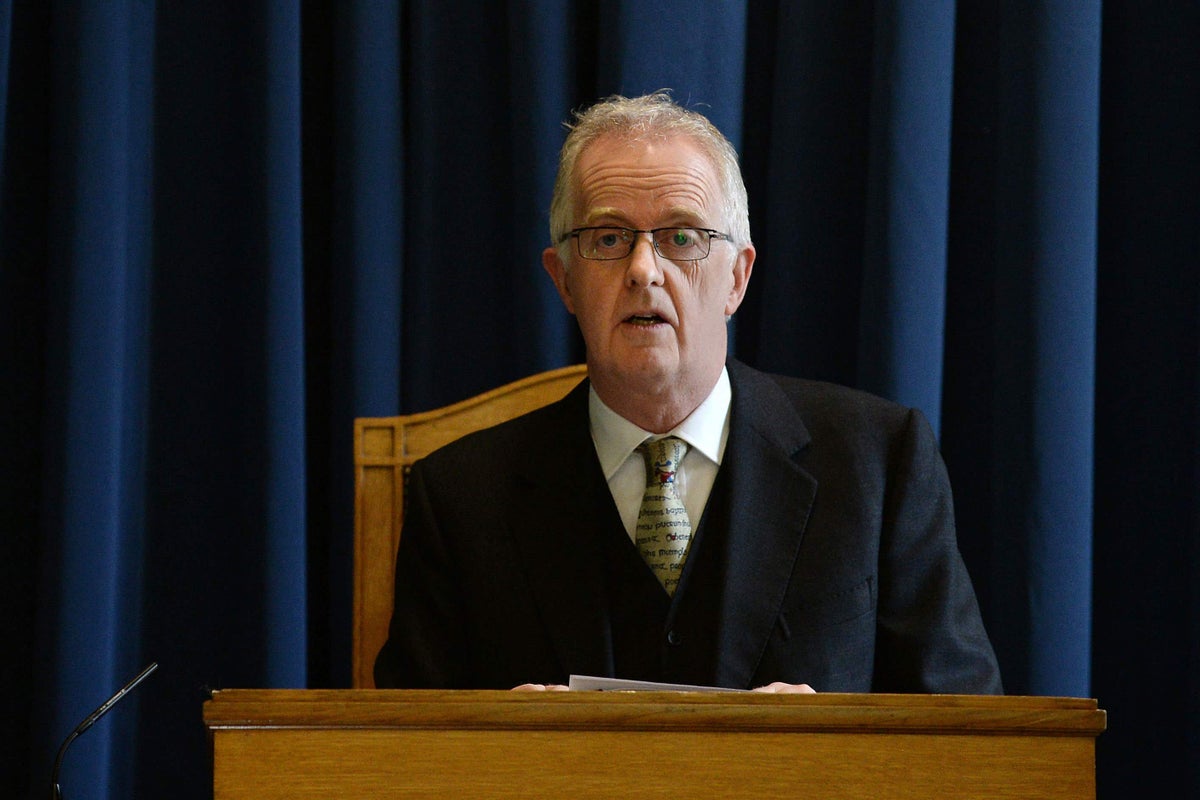
Ireland’s top court has ruled that ratification of an EU-Canada trade agreement would be in breach of the Irish constitution.
Ireland’s deputy leader Leo Varadkar said the judgment was “disappointing”, but said that the Government was still committed to ratifying the trade deal “in full”.
Legal action was taken against the State by Green Party TD Patrick Costello over concerns about the creation of an investor court system to decide complaints by Canadian companies who invest in EU member states, including Ireland.
His legal team argued that this would be unconstitutional as it transfers elements of the State’s sovereignty to external institutions.
A vote in the Irish parliament’s lower house to ratify the deal was postponed in December 2020 and February 2021, amid fears it could cause a split in the coalition Government over the Green Party’s environmental concerns.
In a majority ruling of four judges to three, the Supreme Court found that the Comprehensive Economic and Trade Agreement (Ceta) “constitutes a clear disregard of the Constitution”.
Six judges on the panel suggested that this “constitutional disregard” could be remedied by amending the Arbitration Act 2010, with Mr Justice Peter Charleton disagreeing.
The judgment said: “An amendment to the Arbitration Act 2010, such as is proposed by the majority of the Court, is a contradiction of Ceta and in addition to Government decision and legislation, will also require a specific protocol to the treaty as a matter of international law.
“Even were there to be such a protocol and amended legislation, points two to six hereof are not overcome.
“Such a protocol does not seem to be possible, as that proposal fundamentally contradicts the treaty and it is not immediately apparent that such a course would be permissible under the Vienna Convention on the Law of Treaties 1969, by which Ireland and the European Union are bound,” it said.
Mr Costello welcomed the ruling as a significant moment.
“This has been an extremely lengthy process which began last year when Cabinet signalled their intention to ratify Ceta by way of an Oireachtas vote.
“Since then, we have had a High Court ruling and this appeal to the Supreme Court. I want to thank my legal team for representing me so ably, my family for their encouragement and my supporters for their well wishes.
“The courts have suggested that amendments to the Arbitration Act can be passed to enable ratification of Ceta, however, this will be legally complex and difficult.
“We should instead now reflect on do we want to be part of an investor court system at all.”
Mr Varadkar said that the Government “noted” and would reflect on the judgment.
“While it is disappointing that ratification is not now immediately possible, the Government remains committed to ratifying the Ceta agreement in full.
“It will now take some time to reflect on the wider decision and consider its implications.
“Our initial assessment is that a referendum is not required and that ratification can follow once some changes are made to domestic law.”
Minister of State for Trade Promotion, Digital and Company Regulation, Dara Calleary, said that business links between Ireland and Canada are “deep and extensive”.
“Canada is an important export market, particularly for our indigenous exporters … more than 400 Enterprise Ireland clients are doing business in the Canadian market.
“Government will reflect on the decision today and consider the next steps on how best to proceed and to reassure our Canadian partners that Ireland remains very much an advocate for free, fair and open trade.”
The Irish Congress of Trade Unions (ICTU) welcomed the Supreme Court decision.
ICTU general secretary Owen Reidy said: ‘ICTU has long argued, including in our 2016 statement on Ceta, and the (then proposed) EU-US ‘TTIP’ agreement, that its controversial provisions establishing an ‘Investor Court System’ giving multinational investors the right to sue governments for alleged breaches of their rights under the agreement was an affront to democracy and could breach the Irish Constitution.
“We welcome the fact that the Supreme Court has now clarified the matter, and we congratulate Patrick Costello TD for performing a vital public service in this regard.
“ICTU supports trade agreements between the EU and other countries that are fair and that create better jobs, that protect fundamental rights, including workers’ rights and public services and that promote climate action, not one that privileges investors over democracy.
“It is now incumbent on Government to consider the Supreme Court’s ruling in full and with all stakeholders before deciding its response,” Owen Reidy concluded.







